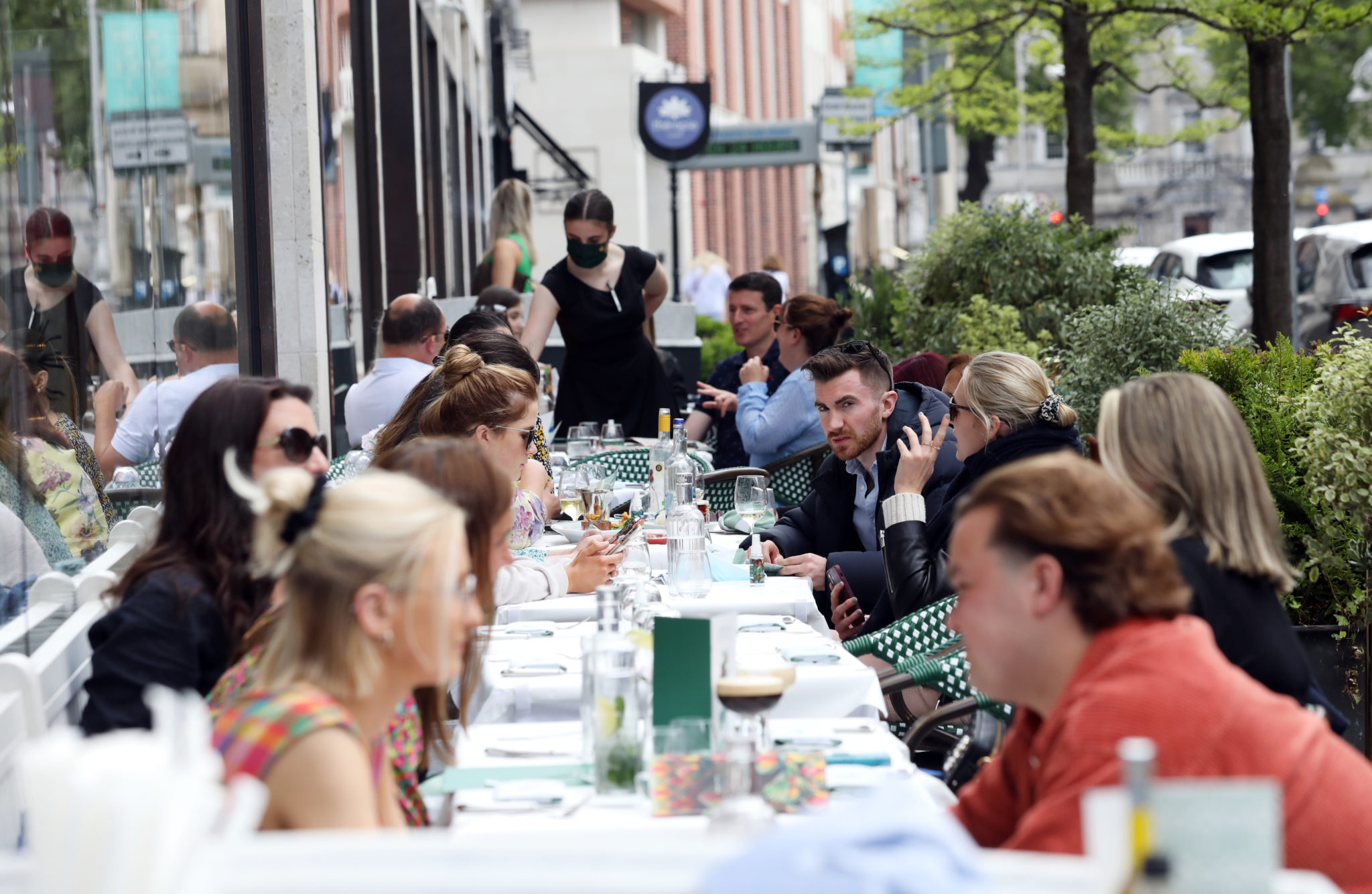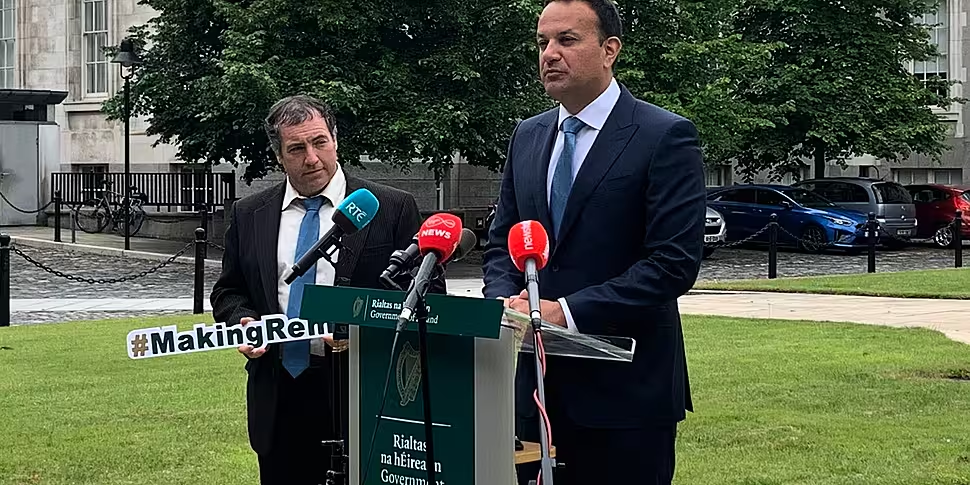A delay to the return of indoor dining is “not inevitable,” according to the Tánaiste.
NHPET is meeting today to consider its advice on the next stage or reopening – with speculation that the return of indoor dining is now in doubt.
Indoor dining is due to reopen on July 5th – alongside the easing of restrictions around household visits, weddings, organised gatherings and indoor fitness training.
However, there is growing concern in some quarters over rising levels of the Delta variant and Cabinet is now expected to make a decision on whether to move forward by tomorrow.
 People having coffee outside a restaurant in Dublin City Centre, 07-06-2021. Image: Sasko Lazarov/RollingNews
People having coffee outside a restaurant in Dublin City Centre, 07-06-2021. Image: Sasko Lazarov/RollingNewsSpeaking this morning, the Tánaiste Leo Varadkar said he still hasn’t seen the NPHET modelling on the effect a delay would may have.
Referencing the view put forward this morning by NPHET member Professor Cathal Walsh that a short delay would reduce cases by 10%, Minister Varadkar said: “That is not an awful lot.”
“We will have to see all the advice, receive all the presentations today and tomorrow and make a decision,” he said.
“The one thing I can say to everyone – citizens, employers, employees – what we want to avoid is having to go backwards.
“We want to avoid a situation whereby it is start-stop. So, a slow, cautious, methodical, logical approach is what we have done up until now; had a very successful reopening so far and we want to stay on that track.”
Tánaiste Leo Varadkar says he can’t give businesses any indication at the moment on the re-opening of indoor dining being delayed. Says he has to see NPHET advice today pic.twitter.com/7NN8uo4z7M
— Seán Defoe (@SeanDefoe) June 28, 2021
He noted that, while the focus in recent days has been on the return of indoor dining, a decision will also have to be made on a number of other parts of reopening – including indoor play centres and indoor team sports.
“What we will look at is, what will any delay potentially achieve?” he said.
“We know it would mean that more people would be fully vaccinated. Hundreds of thousands more people will be fully vaccinated and that is a positive thing.
“But what impact will it have, not so much on cases, but what impact will it have on hospitalisations and deaths, because we know that the great success of the vaccine programme has been that it has weakened the link between cases and hospitalisations and death.
“It hasn’t broken the link but it has weakened that link considerably and of course the more people are vaccinated the more that link is weakened.”
Ireland is the only country in Europe where indoor dining is prohibited.
The Irish Government has conceded we are an outlier.#indoordining5thJuly
— Adrian Cummins 🇮🇪🇪🇺 (@adriancummins) June 28, 2021
Minister Varadkar admitted that Ireland is an outlier in Europe when it comes to the ban on indoor dining – but said Ireland would not make decisions based on what other countries were doing.
“It is the case that we are, I think, the only country or certainly one of only a small number of countries in the EU that doesn’t allow indoor dining,” he said. “We know the US does as well.”
“But we are also conscious of the fact that other countries are funning in to real trouble as a result of Delta.
“Just because everywhere else in Europe has done something or not done something doesn’t mean we should do the same but we do obviously take that into account.”
Vaccines
The National Immunisation Advisory Committee (NIAC) is also meeting today to consider changes to its recommendations on the use of the AstraZeneca and Johnson & Johnson vaccines.
Both jabs are currently only available to people aged 50 and over and there are concerns the country will be left with hundreds of thousands of unused doses if they are not made available to younger people.
Minister Varadkar said it would be “useful” to have the NIAC (National Immunisation Advisory Committee) advice before Cabinet makes its decision but noted that he did not want to put “undue pressure” on the committee.
Donations
He confirmed that Ireland would donate the unused vaccines to other countries if they can’t be given to young people here.
“I think if we can’t use a particular vaccine for good medical or scientific reasons, I think people would actually expect us to donate them to other countries rather than leaving them in fridges here,” he said.
“Remember in large parts of the world, elderly people and healthcare workers are not fully vaccinated. Remember what that was like. When we were sending doctors nurses and healthcare staff into hospitals to treat patients and they weren’t vaccinated themselves.
“So, if we can’t use them here, we are not going to leave them in fridges and I think people would entirely understand why we would then share them with other parts of the world and people who need them.”
Indoor dining
According to European Centre for Disease Prevention and Control (ECDC) figures, Austria, Denmark, France, Germany, Italy, Spain and the Netherlands all have similar vaccination rates to Ireland.
Each one of those countries currently has indoor dining open – although Austria, Denmark and Germany require proof of negative testing or vaccination.
In the UK, where the Delta variant now accounts for over 90% of cases, indoor dining has been open since late May.
Last night, there were 47 COVID patients in Irish hospitals with 15 in intensive care.
With reporting from Seán Defoe









